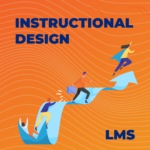As online learning continues to gain popularity, the role of instructional design becomes increasingly vital in creating engaging and effective educational experiences. Instructional design is the process of creating learning materials and experiences that maximize learner engagement, knowledge retention, and skill development. When combined with a robust Learning Management System (LMS), instructional design takes online learning to new heights. In this article, we will explore the advantages of incorporating instructional design principles within an online LMS, and how this dynamic duo can transform the learning journey for learners of all backgrounds.
- Tailored Learning Experiences: Instructional design, when integrated with an online LMS, allows for the creation of personalized and tailored learning experiences. By analyzing the needs, preferences, and learning styles of the target audience, instructional designers can craft content, activities, and assessments that resonate with learners. The LMS acts as a conduit for delivering these tailored experiences, providing learners with access to customized courses, progress tracking, and personalized feedback.
- Engaging Multimedia Integration: An effective instructional design strategy within an online LMS incorporates multimedia elements to enhance learner engagement. With the support of the LMS infrastructure, instructional designers can seamlessly integrate videos, audio files, interactive simulations, and other multimedia formats into their learning materials. These multimedia elements capture learners’ attention, stimulate their senses, and promote active participation, resulting in a more immersive and enjoyable learning experience.
- Interactive Assessments and Feedback: Assessment plays a crucial role in instructional design, serving as a means to measure learners’ progress and understanding. With an online LMS, instructional designers can create interactive assessments such as quizzes, simulations, and scenario-based exercises. These assessments not only provide learners with valuable feedback on their performance but also enable instructional designers to identify areas of improvement and tailor future learning experiences accordingly. The LMS facilitates the automated delivery of assessments, grading, and personalized feedback, saving time and effort for both instructors and learners.
- Collaborative Learning Opportunities: Instructional design, when combined with an online LMS, promotes collaboration and peer-to-peer learning. The LMS provides features such as discussion forums, group projects, and real-time communication tools, enabling learners to interact with their peers, share knowledge, and engage in collaborative problem-solving. Instructional designers can design activities that encourage active participation and social learning, fostering a sense of community and deeper understanding among learners.
- Adaptive Learning Paths: One of the significant advantages of instructional design within an online LMS is the ability to implement adaptive learning paths. Adaptive learning leverages technology to tailor the learning experience to the individual needs and abilities of learners. Instructional designers can create branching scenarios within the LMS, where learners progress through different learning modules based on their performance and mastery of specific concepts. This personalized approach ensures that learners receive the right content at the right time, optimizing their learning outcomes and promoting self-paced learning.
- Data-Driven Insights and Continuous Improvement: An online LMS equipped with instructional design principles empowers instructors and administrators with valuable data-driven insights. The LMS collects and analyzes learner data, including progress, completion rates, and assessment results. Instructional designers can use this information to assess the effectiveness of their learning materials, identify areas of improvement, and make data-informed decisions to enhance the learning experience. The LMS provides comprehensive reporting and analytics capabilities, offering a holistic view of the learner’s journey and enabling continuous improvement of the instructional design strategy.
- Blended Learning Opportunities: Instructional design within an online LMS also opens the doors to blended learning opportunities. Blended learning combines traditional face-to-face instruction with online learning experiences, providing a well-rounded and flexible approach. Instructional designers can create hybrid courses that seamlessly integrate offline and online components




